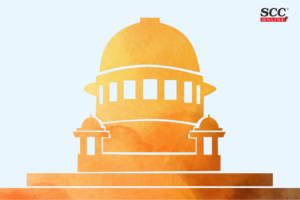Supreme Court: A Division Bench of Sanjay Kishan Kaul and Hemant Gupta, JJ. found that direction passed by the Gujarat High Court requiring the appellant-accused to deposit a sum of Rs 2 lakhs each towards compensation to the victims, as a condition for grant of bail was not sustainable.
Backdrop
An unfortunate incident of a free fight took place between rival groups in November, 2019 after which two victims succumbed to their injuries. FIR was filed in Amreli Police Station in which the present appellants were also arrayed as accused. Appellants were arrested. They applied for bail and in December, 2020, bail was granted by the High Court.
The Controversy
While granting bail to the appellants, the High Court imposed a condition on the appellants requiring them to deposit Rs 2 lakhs each as compensation to the victims before the trial court within a period of three months.
Aggrieved by this direction, the appellants approached the Supreme Court contending that there is no such provision in CrPC that entitles the Court to impose such a condition for payment of compensation for the grant of bail. It was submitted that the High Court imposed above-mentioned condition for bail in view of the “amended provisions” relating to victim compensation; however, it did not refer to any specific provision.
Condition Not Sustainable
After referring to various provisions of CrPC including Section 357 (Order to pay compensation), Section 235 (Judgment of acquittal or conviction) and Section 250 (Compensation for accusation without reasonable cause), the Court concluded that:
“In our view the objective is clear that in cases of offences against body, compensation to the victim should be a methodology for redemption. Similarly, to prevent unnecessary harassment, compensation has been provided where meaningless criminal proceedings had been started. Such a compensation can hardly be determined at the stage of grant of bail.“
The Court hastened to add that it did not mean that no monetary condition can be imposed for grant of bail. It said:
“We say so as there are cases of offences against property or otherwise but that cannot be a compensation to be deposited and disbursed as if that grant has to take place as a condition of the person being enlarged on bail.“
Concluding as above, the Court held that the direction contained in the impugned order for deposit of compensation of Rs 2 lakhs for the legal heirs of the deceased, naturally cannot be sustained and has to be logically set aside.
Bail Granted
The Court also considered whether bail should be granted to the appellants, and if so, on what terms and conditions. In this context, the appellants contended that the specific allegations against them was that they had beaten the complainant and the witnesses and not any of the deceased. It was a case of a free fight between two groups where each alleged the other to be the aggressor. Not only that, the other accused persons had been granted bail without imposing the aforesaid condition.
The State could not dispute the role of the appellants vis-a-vis the role of the other accused persons who had been enlarged on bail.
In such view of the matter, the Court considered it appropriate to impose the same terms and conditions for grant of bail upon the appellants as imposed on the other accused persons. The condition impugned and set aside above was substituted with the condition that the appellants will not enter the geographical limits of Amreli for a period of six months except for marking presence before the police station concerned and to attend the court proceedings. [Dharmesh v. State of Gujarat, 2021 SCC OnLine SC 458, decided on 07-7-2021]
Tejaswi Pandit, Senior Editorial Assistant has reported this brief.

